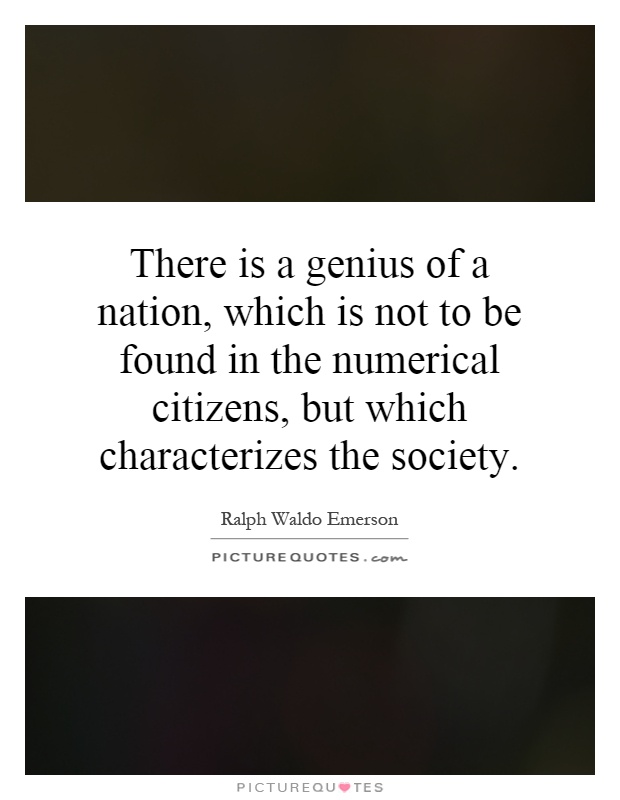There is a genius of a nation, which is not to be found in the numerical citizens, but which characterizes the society

There is a genius of a nation, which is not to be found in the numerical citizens, but which characterizes the society
Ralph Waldo Emerson, a prominent American essayist, lecturer, and poet, was a firm believer in the idea that there is a genius of a nation that is not necessarily reflected in the individual citizens, but rather in the collective society as a whole. Emerson's philosophy was deeply rooted in the concept of individualism and self-reliance, but he also recognized the importance of community and the shared values and beliefs that bind a nation together.Emerson believed that every nation has a unique spirit or genius that sets it apart from others. This genius is not something that can be measured or quantified in terms of the accomplishments of individual citizens, but rather it is a collective energy or essence that permeates the society as a whole. This genius is reflected in the culture, traditions, values, and beliefs of the nation, and it is what gives a nation its distinct identity and character.
Emerson saw the genius of a nation as something that transcends the limitations of individual achievement and encompasses the collective spirit of the people. He believed that this genius was a source of inspiration and creativity that could drive a nation to greatness and lead it to fulfill its potential. In his essay "Self-Reliance," Emerson wrote, "Society is a wave. The wave moves onward, but the water of which it is composed does not." This metaphor illustrates Emerson's belief that the genius of a nation is like a wave that moves forward with a sense of purpose and direction, even as individual citizens come and go.
Emerson's ideas about the genius of a nation were deeply influenced by his belief in the power of the individual to shape society and bring about positive change. He believed that each person had a unique contribution to make to the collective genius of the nation, and that by embracing their own individuality and creativity, they could help to elevate the society as a whole. Emerson's philosophy of self-reliance and individualism was not meant to promote selfishness or isolation, but rather to encourage people to tap into their own inner genius and contribute to the greater good of society.












 Friendship Quotes
Friendship Quotes Love Quotes
Love Quotes Life Quotes
Life Quotes Funny Quotes
Funny Quotes Motivational Quotes
Motivational Quotes Inspirational Quotes
Inspirational Quotes